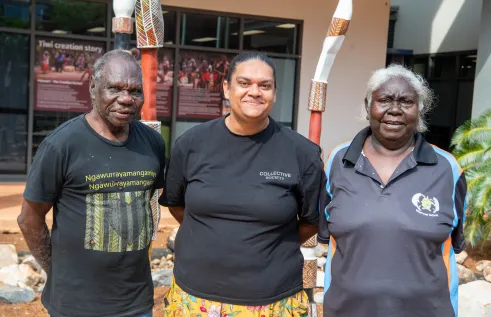Top End communities gather to keep First Nations languages strong

More than 75 delegates representing over 30 First Nations languages gathered at Charles Darwin University’s (CDU) Casuarina campus in June for the Top End Languages Forum 2025.
The three-day forum brought together language champions, educators, and community leaders from across more than 10 Top End communities to share knowledge, celebrate language diversity, and drive forward community-led language initiatives.
A major outcome of the forum was the drafting of the Top End Strong Languages Statement - a declaration of shared commitment to bilingual education, community language governance, and grassroots-led revival efforts.
The Top End Strong Languages Statement will be launched later this year.
Guest speakers Brenda Muthumuluwuy and Gawura Wanambi, from CDU’s First Nations Sovereignty and Diplomacy Centre, spoke about 'Märr' - a Yolŋu word associated with spiritual power and a driving force that can motivate language work.
Forum facilitation was led by Rarrtjiwuy Melanie Herdman, Pirrawayingi Puruntatameri, Jenny Manmurulu and CDU PhD candidate Ian Mongunu Gumbula.
The event was hosted by CDU’s Linguistics Department with support from James Bednall and Mario Faggion, and funded by the Australian Institute of Aboriginal and Torres Strait Islander Studies.